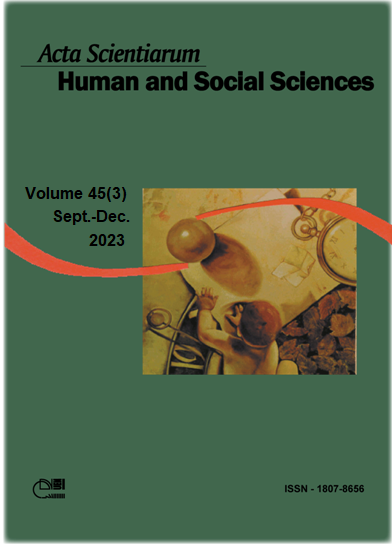Círculo de cultura sobre estratégias de indigenização da saúde mental com povos indígenas do Ceará
Resumen
As concepções sobre saúde mental variam, pois são atravessados por aspectos socioculturais, históricos, materiais e simbólicos que organizam as realidades das diversas sociedades ao redor do mundo. Nesse viés, o processo de saúde-doença permeia os aspectos socio simbólicos, influenciados por crenças, saberes e cuidados que circulam e se ressignificam na estrutura instituída de um grupo comunitário organizado. Quando se trata dos povos originários, apesar de não existir uma identidade indígena única, pois há diferenças socioculturais que singularizam cada etnia, geralmente eles entendem as alterações na saúde a partir de manifestações culminadas pelas forças espirituais e da natureza. o presente estudo visa apresentar processos de indigenização da saúde mental com povos indígenas do Ceará. Seu propósito é expressar vivências de roda de conversas articuladas a partir do círculo de cultura freiriano, por uma perspectiva que almeja práticas em saúde que sejam decoloniais, privilegiando saberes da aldeia. Trata-se de uma pesquisa qualitativa, básica e descritiva, do tipo pesquisa ação. O estudo aborda sobre a vivência de 7 rodas de conversas sobre saúde mental em diferentes aldeias indígenas localizadas em comunidades rurais do Ceará. Os Círculos foram gravado em formato de áudio. Então, foram transcritos os diálogos ocorridos e analisados por meio de Análise de Conteúdo de Laurence Bardin (2011). A partir da análise das informações produzidas emergiram três categorias, sendo elas: concepções sobre saúde mental indígena, violência estrutural como fator de sofrimento, atuação do SUS nos territórios indígenas. Estes foram elementos centrais nas construções coletivas nos círculos de cultura e são essenciais na discussão da saúde indígena. Logo, é necessário compreender as concepções de saúde a partir das populações, considerando seus aspectos sociais, culturais e políticos. Podemos tornar o saber popular um aliado do saber científico, resultando na criação de novos conhecimentos, que possibilitará uma nova visão sobre o binômio saúde-doença.
Descargas
DECLARAÇÃO DE ORIGINALIDADE E DIREITOS AUTORAIS
Declaro que o presente artigo é original, não tendo sido submetido à publicação em qualquer outro periódico nacional ou internacional, quer seja em parte ou em sua totalidade.
Os direitos autorais pertencem exclusivamente aos autores. Os direitos de licenciamento utilizados pelo periódico é a licença Creative Commons Attribution 4.0 (CC BY 4.0): são permitidos o acompartilhamento (cópia e distribuição do material em qualqer meio ou formato) e adaptação (remix, transformação e criação de material a partir do conteúdo assim licenciado para quaisquer fins, inclusive comerciais.
Recomenda-se a leitura desse link para maiores informações sobre o tema: fornecimento de créditos e referências de forma correta, entre outros detalhes cruciais para uso adequado do material licenciado.


























